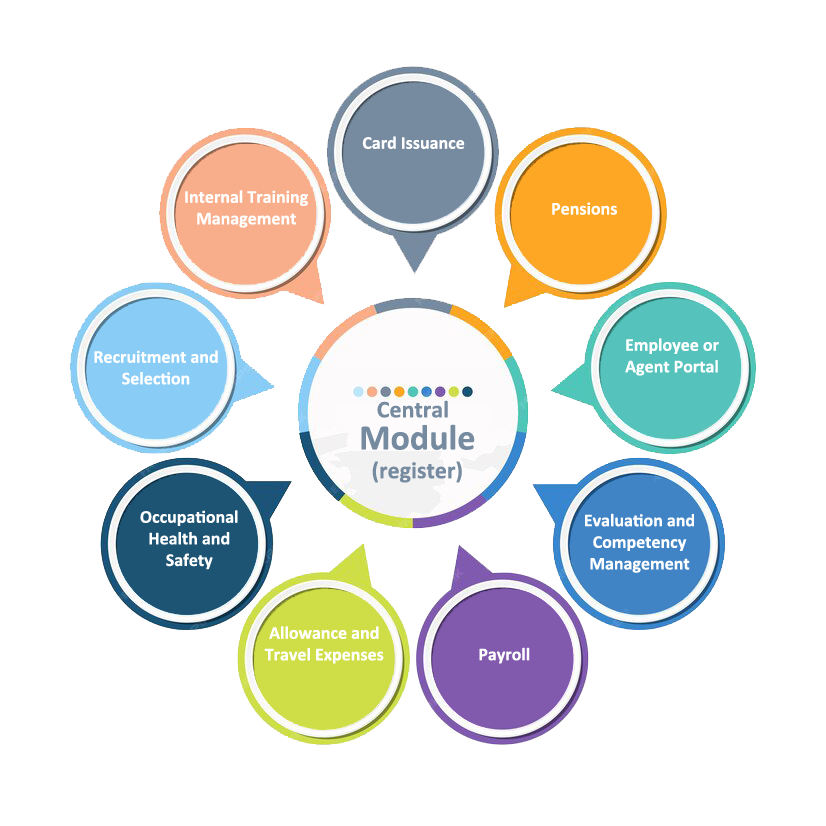SINGAPTL-PMIS – Integrated Management System for the Public Administration of Timor-Leste – Personal Management Information System
The PMIS is an integrated system that streamlines and optimizes all tasks related to human resources management. The system is fully compliant with Timor-Leste’s laws and career structures.
The system is multilingual, capable of being used in both Tetum and Portuguese, and allows for the inclusion of other languages if needed.
Improve the HRM Practices in your Government institution. Align the HRM with the public service values and goals, such as improving service quality, innovation, and accountability.
The SINGAPTL-PMIS will give you a base for strategic decision-making and planning of your public organization, as well as managing organizational change. PMIS will help to improve your HRM Systems and Performance achieving better efficiency, effectiveness, and customer satisfaction.

The system is composed of the following modules:
a) Central Module (register):
Manage and store the personal and professional data of the employees and agents of the organization, such as name, date of birth, identification number, address, contact, academic qualification, professional experience, training courses, position, attendance, appraisal evaluation register, salary, benefits, etc. All documents can be scanned and attached to the employee or agent’s registration. Among the many features of this module are a set of statistics and management indicators essential for the management of any institution.
b) Recruitment and Selection module:
Manage the processes of recruitment and selection of new employees and agents for the organization. This module allows you to define the requirements and competencies necessary for each vacancy, advertise the employment opportunities, receive and analyze the resumes of the candidates, conduct tests and interviews, select the best profiles and hire the new collaborators. All documents such as lists of admitted and excluded, test results, etc., are issued through the system.
c) Internal Training Management module:
Manage the processes of internal training of the employees and agents of the organization. This module allows you to identify the training needs of each collaborator, define the objectives and the training plan, organize and carry out the training actions, evaluate the effectiveness and impact of the training, issue certificates and diplomas and control the training budget.
d) Card Issuance module:
Issue identification cards for employees and agents of the organization. This module allows you to customize the cards with the personal and professional data of the collaborators, as well as with the logo and colors of the organization. This module also allows you to generate barcodes or chips to facilitate reading cards.
e) Pensions module:
Manage pension processes for employees and agents of the organization. This module allows you to calculate pension values for retirement or disability of collaborators, as well as contributions to social security. It also allows you to manage pension requests, bank data changes, payment receipts and tax vouchers.
f) Employee/Agent Portal module:
An online portal for employees and agents of the organization. This portal allows collaborators to access their personal and professional data, consult their training history, request vacations or leaves, consult their pay slip, communicate with their superiors or colleagues, among other features.
g) Evaluation and Competency Management module:
Manage evaluation and competency management processes for employees and agents of the organization. This module allows you to define criteria and performance indicators for each position or function, conduct periodic evaluations of collaborators, identify existing competencies and competencies to be developed, define individual or collective development plans, recognize and reward best performances.
h) Payroll module:
Manage salary processes for employees and agents of the organization. Calculate salary values based on length of service, overtime hours, allowances, discounts, taxes, etc.
i) Allowance and Travel Expenses module:
This module allows you to define the rules and values of the allowances and travel expenses, authorize or refuse the requests of the collaborators, control the proofs of the expenses, carry out the reimbursements or advances, issue the receipts and tax declarations.
j) Occupational Health and Safety module:
Manage the processes of occupational health and safety of the employees and agents of the organization. It allows you to identify and evaluate the professional risks, define and implement the prevention and protection measures, carry out the training and awareness sessions, register and analyze the work accidents, prepare the reports and statistics, comply with the standards and legislation.
PMIS is a flexible and scalable system that can be customized to meet your present and future needs. PMIS is developed by Quidgest, a leading company in software solutions for public management. Explore how PMIS can assist your organization in managing its most valuable assets: Human Resources.
See the case study SIGRHARA – Sistema Integrado de Gestão dos Recursos Humanos da Administração Regional dos açores